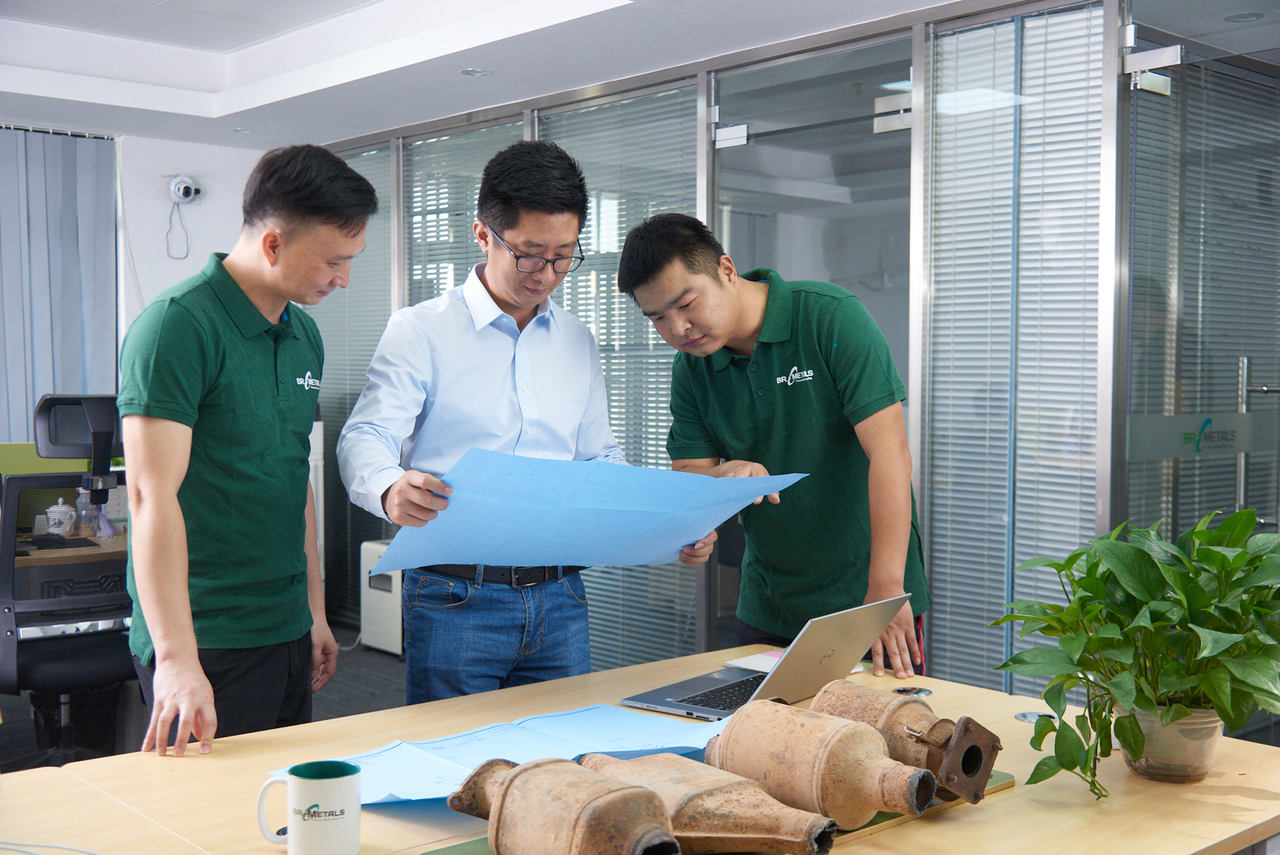BR Metals: A sharper edge in precious metal recycling
Sign up now: Get ST's newsletters delivered to your inbox

The company is now a leading exponent of the recovery of platinum group metals.
PHOTO: BR METALS
Follow topic:
SINGAPORE - Many would think that technology companies are the ones growing rapidly in this digital age, but a humble precious metal recycling firm has consistently been among the fastest-growing firms in Singapore.
BR Metals was ranked seventh this year on a top 10 list of fast- growing companies compiled by The Straits Times and global research company Statista - making this its third time on the list.
The company was started in 2009 to recycle precious metal scraps and minimise the serious and often irreversible environmental damage and social impact brought on by mining.
Founder and managing director Frank Chen said: "Right from the get-go, I wanted to elevate the level of professionalism and transparency in the collection, processing and recycling of precious metal scraps, which was generally lacking in the industry at that time.
"I also wanted to 'democratise' the precious metal recycling business and provide the same level of services, know-how and customer care that were offered by big-name refineries and international recyclers to smaller suppliers."
The company is now a leading exponent of the recovery of platinum group metals, which include platinum, palladium and rhodium, from spent materials like catalytic converters and spark plugs.
It reclaims and returns an estimated 80,000 troy ounces of platinum group metals every year to the circular economy.
BR Metals runs two bulk semi-automated sampling lines and full analysis laboratories in Singapore and Guangzhou, and has set up a new production facility in Shaoguan, Guangdong, with the help of Enterprise Singapore.
The company has grown from four people in 2014 to over 50 today across its three offices.

safast19
PHOTO: ST
But Mr Chen is not content to just rest on his laurels. "As for our future plans, while we foresee a relatively high growth rate in the next two to three years, our intention is to build a more balanced portfolio, both geographically and segmentally, so as to reduce our reliance on any particular region or segment.
"Diversification will stand the company in good stead through fluctuations and long-term changes in any of its waste streams - for example, if fossil-fuel vehicles eventually give way to electric ones."
The firm is also scaling up its capabilities through research and development and acquiring new technology. It aims to build up production capacity and capture more market share in China, where stricter emission legislation will bring growth opportunities, Mr Chen added.

